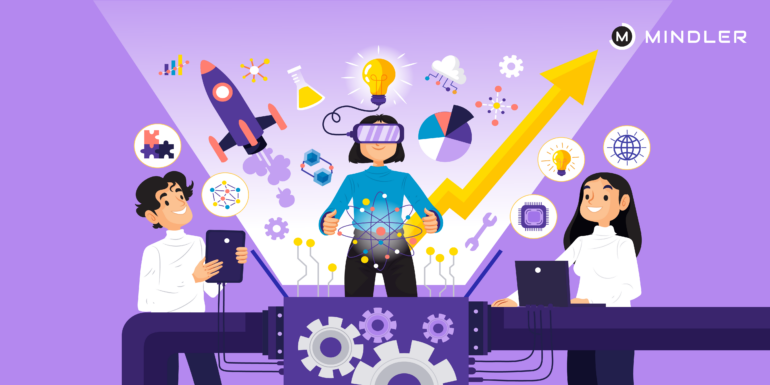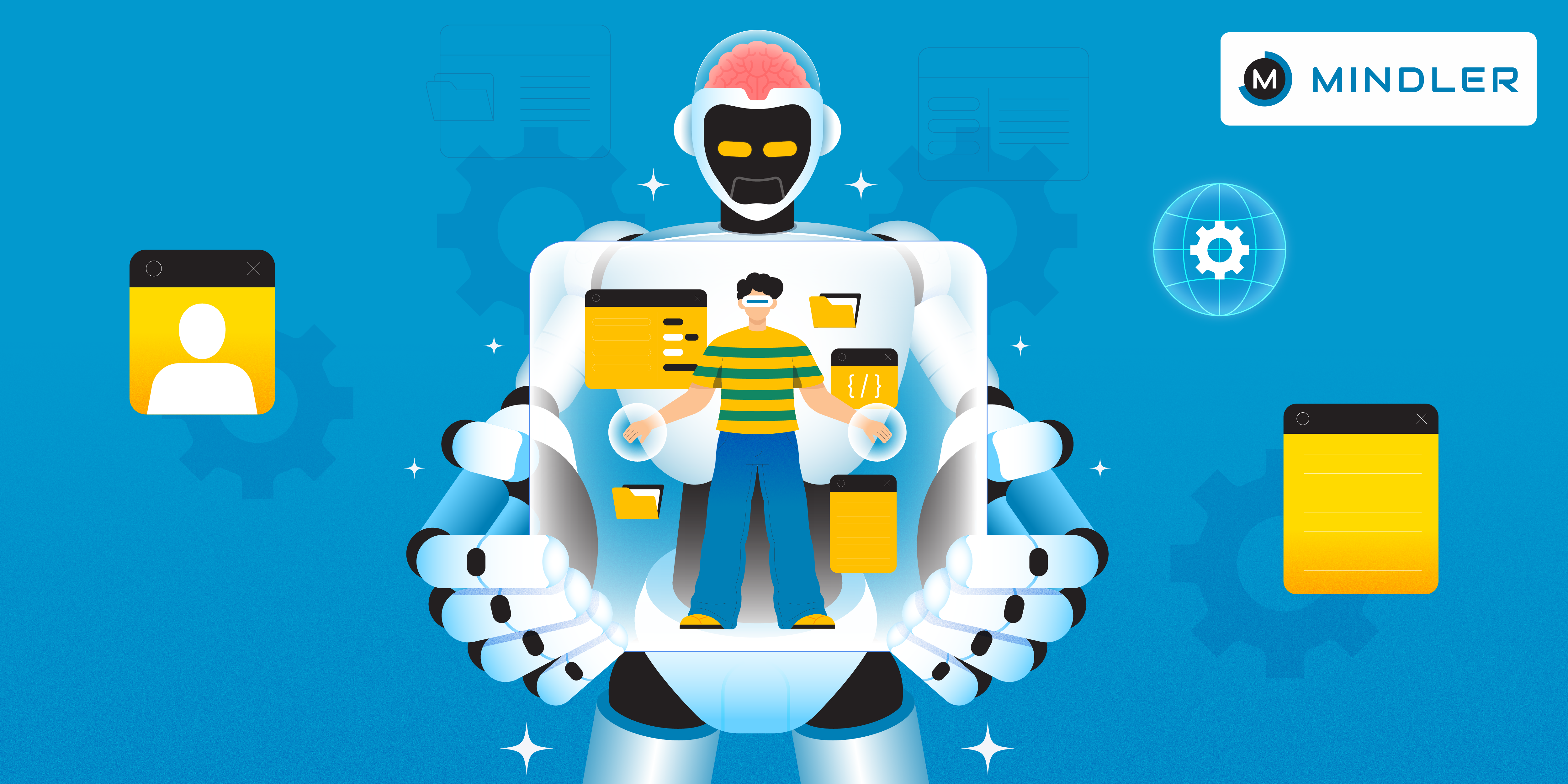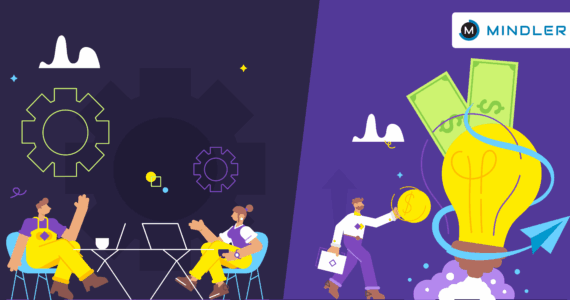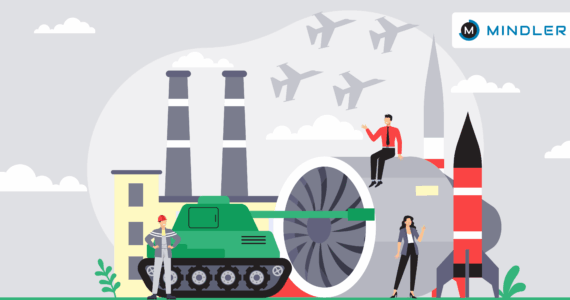AI and the Future of Work: Threat to Jobs or Gateway to New Opportunities?
One of the biggest concerns when it comes to planning a career is AI and the future of work. Artificial intelligence is transforming the nature of work in ways that few of us would have thought possible a few years back. For example, AI-based applications such as ChatGPT can write emails, reports, and algorithms to help doctors more accurately diagnose diseases such as cancer. Self-driving cars are changing transportation work, and machine learning programs are computerizing repetitive duties in fields such as finance and customer support. The rate of this advancement has left a lot of individuals wondering what their professional future will hold.
Some are afraid that AI will replace their jobs and create unemployment, while others find new opportunities and effortless work in the future. The truth lies between, and understanding this balance is important for career planning. Chatbots that help with online shopping or algorithms that suggest movies are only a few examples of how AI already collaborates with people in various areas. Embracing these changes can aid in making wiser career choices.
What is AI Doing to Jobs Right Now?
Artificial intelligence is already present in many workplaces, and the future of AI is defining the current employment trends. Virtual assistants create appointments and organize email. Financial data is analysed by algorithms to identify fraud. In warehouses, inventory is managed by automated systems.
According to some reports, AI could contribute to the loss of approximately 85 million jobs by 2025, whereas other sources show the emergence of nearly 97 million new positions in the same time frame. This indicates the potential that the number of new AI-related jobs may be higher than the number of jobs lost, though outcomes may vary.
Certain jobs are indeed disappearing. Machines are replacing tasks that involve the same repetitive pattern. Examples include data entry, simple bookkeeping, and simple customer service calls. However, that does not imply that all human work will disappear.
AI Creates New Job Opportunities
As much as AI is taking away jobs, artificial intelligence is opening up new employment opportunities in numerous fields. This transition has already begun, and its evidence can be observed in the way industries are adjusting and expanding with AI.
Here’s how AI creates jobs:
- New Industries Emerge: In the same way that the internet generated whole new industries that never existed (social media management, app development, online marketing), AI is generating entirely new industries. Firms now require AI, data analysts, and machine learning experts.
- Existing Jobs Evolve: Most of the existing jobs are getting more interesting and useful with the integration of AI. For example, marketers taking advantage of AI will be able to create more efficient and targeted campaigns, whereas physicians utilizing AI-powered technologies will be capable of making more accurate diagnostics. By doing so, workers become more valuable rather than being replaced.
- Support Roles Multiply: Every AI system needs human support. A human is needed to train the AI, monitor its performance, troubleshoot, and justify decisions to clients. These are supporting roles that are increasing at a high rate.
- Supervision and Management: Since the AI does the routine work, the humans do the high-level work, such as strategy, creativity, and building relationships. This increases the management and supervisory jobs.
- Customization and Personalization: AI can manage simple tasks, but it cannot fully understand a customer’s emotions or unique preferences. People are needed to interpret this deeper context and use AI tools to create truly personalized solutions that AI alone can’t provide.
Consider it like this: we did not cease to require workers when computers became widespread. Rather, we wanted other kinds of workers. Individuals were taught how to operate computers, and new employment opportunities emerged. Occupations such as software development, IT support, and digital design came into existence. This is the same case with AI. With each job that the AI takes over, two or three new job types are frequently generated. The challenge is that the new jobs do not require the same skills as the old jobs.
New AI Careers You Should Know About
The future of artificial intelligence is creating new careers that never existed before. The following are some of the new AI careers that are rising rapidly:
- AI Trainer: These specialists train the AI systems to perform more effectively. They supply machines with information and assist them in learning through their errors. It is one of the most promising artificial intelligence careers.
- AI Ethics Specialist: As artificial intelligence develops, it also requires specialists who make sure it is applied ethically. These experts assist businesses in implementing AI in a socially responsible manner and are a growing profession within AI-related jobs.
- AI Product Manager: They determine how companies can employ AI in products and services. They are the link between technical teams and business requirements.
- Data scientists: They find patterns in large amounts of information that help AI make better decisions. This is a crucial role in the development of artificial intelligence in the future.
AI Career Opportunities Across Different Fields
Careers in artificial intelligence are not restricted to technology firms. AI skills are required in many industries:
- Healthcare: AI is being employed more and more to assist physicians in disease diagnosis, and in many cases, it can accelerate and enhance precision. As a result, medical professionals familiar with AI may find growing opportunities.
- Education: Personalized learning and smart tutoring systems are the future of AI in education. Education specialists and teachers capable of collaborating with AI tools will get more opportunities.
- Finance: AI helps banks identify fraud and make loan decisions. Financial professionals with AI knowledge can grow more quickly in their careers.
- Marketing: AI helps companies understand what customers want. Employers are more inclined to hire marketing specialists that are capable of utilizing AI-related tools.
- Manufacturing: Smart factories need workers who can operate alongside robots and AI systems.
Jobs That AI Cannot Replace
As powerful as it may be, AI cannot do it all. Occupations that need human imagination, emotional insight, and sophisticated problem solving will continue to be valuable. These include:
- Teachers and counselors who connect with students emotionally
- Nurses and healthcare workers who provide care and comfort
- Managers who lead teams and make difficult decisions
- Skilled trades like plumbing, electrical work, and carpentry
AI Automation and the Future of Work
AI automation will still alter the way we work, yet it will open new opportunities. AI is expected to collaborate with humans rather than completely replace all of them as workers. This human-machine collaboration is referred to as augmented work.
For example, an AI-assisted doctor may be able to rapidly analyze medical imagery; however, they also need to speak with patients and determine treatment. An educator may employ AI to develop individualized lesson plans, but they must also engage and encourage learners. Likewise, AI in IT support can assist technicians in diagnosing system problems faster, yet human knowledge is required to handle complicated troubleshooting and communication with customers.
How to Prepare for AI Jobs in the Future
Start building your path to an AI job with these practical tips:
- Focus on Human Skills: Skills such as creativity, empathy, leadership, and critical thinking cannot be easily replicated by AI.
- Develop Problem-Solving Skills: AI is more proficient in executing commands, but humans are better at figuring out what problems need to be solved.
- Learn Basic Computer Skills: You do not need to be a programmer, but an understanding of the principles of the functioning of technology will be useful.
- Improve Your Communication Skills: As more routine jobs get automated, the skill of communicating effectively with humans gets more appreciated.
- Stay Curious and Keep Learning: Technology is changing rapidly, and individuals who are willing to learn new things will find it easier to adapt to changes.
The Reality About AI and Jobs
The fear that AI will eliminate all jobs is not supported by facts. Historically, new technologies have always transformed the job market, but new opportunities have been created. The introduction of e-commerce not only reduced the number of shopping assistants required but also created new workplaces in the areas of logistics, online advertising, warehouse management, and technical support. Cars did not just substitute the horses but generated whole new industries based on their manufacturing, maintenance, and transportation.
AI is driving similar changes. Although certain jobs are lost, new ones are created. The important thing is to be ready and remain adaptable as work keeps on changing.
Conclusion
The future of work with AI is cooperation, rather than replacement. Artificial intelligence is transforming industries at a fast pace, but it offers more new jobs than it eliminates, which provides opportunities to those who can adjust. The combination of human abilities and AI tools allows young people to work in all spheres, including healthcare, education, and business. Individuals who know how to utilize technology will have greater opportunities and careers. AI career opportunities are rising in all fields, so students should begin preparing today by developing the skills that will complement or supplement AI-driven tools.








